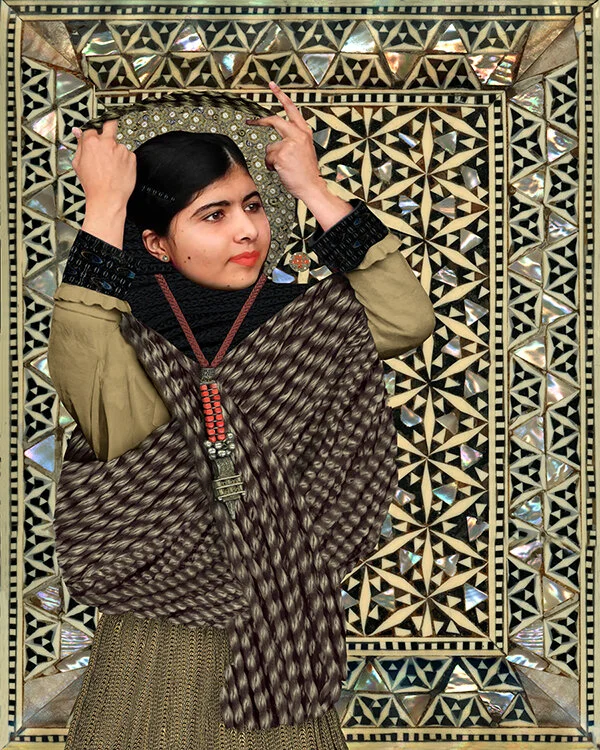EDUCATION NOT MARRIAGE
HUMAN RIGHTS ACTIVIST | NOBEL PEACE PRIZE LAUREATE
Malala Yousafzai was born in a Pakistani village in transition from a peaceful region to a military-controlled space where those who did not comply were slaughtered in the city’s streets. The Taliban was taking control of politics and education.
While most girls were not encouraged to learn anything about life outside their homes, Malala’s father, a teacher and activist, allowed her to study anything she chose. She was scarcely ten when she began drawing the attention of friends, family – and Taliban foes, too – by giving speeches and presenting papers on women’s and children’s rights.
Then the Taliban attempted to murder Malala, just fifteen, on a bus to school. She survived and brought a new awareness of the evils of the Taliban to the entire world. She became a touchstone for all issues regarding women, children and education. The entitlement to adequate education for every child, no matter his or her economic standing, was the cornerstone of her belief system.
Her activism resulted in many International and National awards. At seventeen, Malala was named among the 100 Most Influential People in the World. Also at seventeen, her human rights advocacy work led her to become the youngest-ever Nobel Laureate.
Referencing the gunman who had tried to kill her she said: “I don’t hate. If I had a gun in my hand…I wouldn’t shoot him. This is the compassion I have learned from Muhammed, the Prophet of Mercy, Jesus Christ and Lord Buddha.”


